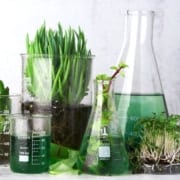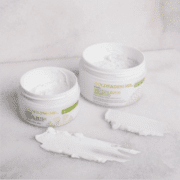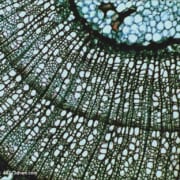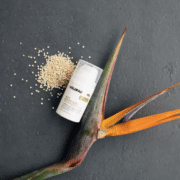Beauty report: What Natural, Clean and Organic Really Means
What constitutes a “natural” beauty product? There’s still no universally accepted standard, even though the market is growing at a rapid rate and the FDA is involved, making changes and will continue to set standards. The skin is the body’s largest organ and research proves it capable of absorbing up to 60% of the ingredients in the products we apply – that is a large number and we’ve become more aware of what ingredients are found in our products for this reason. There is a large majority of bath, body, hair, makeup and skincare products available today which contain commonly used synthetic ingredients such as Parabens, detergents, preservatives and SLS; these synthetic ingredients have been recognized to cause irritation in some people and may have damaging effects longer-term. Ultimately, brands are choosing their own classification and how they represent themselves.
The industry and consumers use the three words, clean, natural and organic loosely and interchangeable, when in reality they are all different.
Wikipedia’s definitions shed some light on the differences between natural and organic:
A natural product is a chemical compound or substance produced by a living organism—that is, found in nature.[2][3] In the broadest sense, natural products include any substance produced by life.[4][5]
An organic product is made from materials produced by organic agriculture. Most appropriately(,)organic beauty products can be explained as any products that is made or cultivated without the use of Genetically Modified Organisms (GM), herbicides, synthetic fertilisers and more. In order to warrant if a product is organic, the USA uses USDA certification – NOP National Organic Program to define a cultivated product (or ingredient) as organic.
The term ‘clean’ when used in the beauty and wellness industry loosely refers to being “free of something” i.e. an ingredient, filler or preservative. The word ‘clean’ may also be used to refer to the sustainability of packaging or ingredients. The use of the word ‘clean’ is not mandated and is interpreted, demonstrated and used freely by individuals and brands as they see fit to further describe benefits (so it’s important to read the labels!). Therefore, there are many definitions of what clean means.
As a brand we identify as a clean, naturally inspired brand which utilizes a combination of natural and organic ingredients. We do not formulate with silicones, mineral oil, parabens, alcohol, SLS, and artificial/synthetic dyes and fragrances – all of which can lead to skin irritation. We adhere to and are compliant with the EU’s banned list of ingredients. Many retailers are deferring to the EU’s list of roughly 1400 banned ingredients, which are known to or suspected of causing cancer, birth defects, and reproductive harm, as a standard of defining clean and natural. Join us in the clean beauty movement
Interested in what you can do to add to your clean movement? Check out our lean life swap tips:
- Store your water in a stylish, yet totally functional (hello cold water all day) SWELL water bottle and feel good about eliminating plastic water bottles and going BPA free FOREVER.
- The average reusable bag has a lifespan equal to that of more than 700 disposable plastic bags. One person using reusable bags over their lifetime would remove more than 22,000 plastic bags from the environment. Nuf said.
- Join us in a global movement to eliminate plastic drinking straws from our landfills, our streams, our oceans, and our beaches. Swap for paper, stainless or even bamboo straws.
- Give a hoot – don’t pollute and pick up! The ocean is not a garbage can and neither is the street or the side of the road.









Leave a Reply
Want to join the discussion?Feel free to contribute!